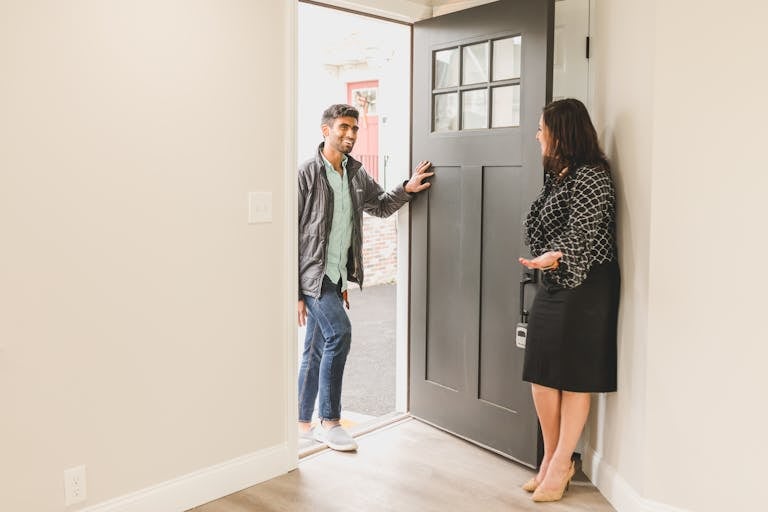Homeownership has long been considered the cornerstone of the American Dream. Yet a surprising number of people who achieve this milestone find themselves questioning their decision. Recent research reveals that nearly half of all homeowners experience buyer’s remorse about their current property—and the primary culprit isn’t what you might expect.
The Shocking Statistics Behind Homeowner Regret
According to recent survey data, 45% of American homeowners admit to having regrets about their home purchase. While you might assume their complaints center on location, size, or mortgage payments, the reality is more nuanced. The leading source of frustration? The overwhelming burden of maintenance costs and unexpected fees that many buyers fail to anticipate.
The financial reality of homeownership extends far beyond the monthly mortgage payment. The average American homeowner faces over $18,000 annually in non-mortgage expenses. In high-cost states like Hawaii and California, this figure balloons to nearly $29,000 per year—a substantial sum that can strain even well-prepared budgets.
The Invisible Expenses That Catch Buyers Off Guard
These hidden costs encompass a wide range of necessary expenses that don’t typically factor into initial home-buying calculations:
Utilities and Services: Internet, electricity, water, and gas bills that vary significantly by region and home size.
Property Taxes: Annual assessments that can fluctuate based on local government needs and property value changes.
Maintenance and Repairs: Everything from routine upkeep to emergency fixes that can arise without warning.
Insurance Premiums: Homeowner’s insurance costs that vary based on location, home value, and coverage levels.
HOA Fees: Association dues in many neighborhoods that cover shared amenities and maintenance.
For buyers who stretch their budgets to secure their dream home, these additional expenses can create genuine financial hardship. Without adequate preparation, homeowners may find themselves unable to afford necessary repairs, forced to delay important updates, or even falling into debt.
Smart Strategies to Minimize Maintenance Surprises
Invest in Professional Inspections
The most effective way to avoid costly surprises is thorough due diligence before purchase. A comprehensive home inspection provides invaluable insight into potential issues that could become expensive problems down the road.
Professional inspectors can identify everything from minor issues like leaky faucets or loose railings to major concerns such as foundation problems or electrical hazards. While discovering these issues might feel discouraging initially, early detection allows you to:
For significant issues, don’t hesitate to bring in specialists for secondary inspections. The upfront cost of multiple professional assessments often pays for itself by preventing much larger expenses later.
Embrace Preventive Maintenance
One of the most cost-effective approaches to homeownership involves consistent, proactive maintenance rather than reactive repairs. Regular upkeep typically costs far less than emergency interventions and can significantly extend the lifespan of major home systems.
Consider creating seasonal maintenance schedules that include:
Spring: HVAC system servicing, exterior painting touch-ups, and landscaping preparation
Summer: Deck and outdoor structure maintenance, window and door inspections
Fall: Gutter cleaning, roof inspections, and winterization preparations
Winter: Indoor system checks, pipe insulation, and planning for spring projects
By budgeting time and money for routine maintenance, you can often prevent minor issues from escalating into major, expensive repairs.
Rethinking the Timeline: There’s No Rush to Buy
The pressure to achieve homeownership can lead to hasty decisions that result in long-term regret. Financial experts emphasize that there’s genuine wisdom in taking time to ensure you’re truly prepared for the full scope of homeownership responsibilities.
The Case for Patient Preparation
Renting while you prepare for homeownership isn’t a failure—it’s strategic planning. This approach allows you to:
Comprehensive Financial Planning
Before making an offer on any property, consider consulting with financial professionals who can help you develop a realistic budget that accounts for the full spectrum of homeownership costs. This planning should include:
Ready to Get Your Rental on the MoveZen System?
Our ultimate goal is to maximize your bottom line income while minimizing headaches. This starts with our new owner onboard process
Thinking of Switching Property Management Companies?
Don’t let the unpleasant task of working with your current manager to close out your account hold you back, we’ll do it all. Just notify them once in writing, and we’ll do the rest
Making Informed Decisions for Long-Term Success
The goal isn’t to discourage homeownership but to promote informed decision-making that leads to positive outcomes. Understanding the complete financial picture of property ownership allows you to make choices that align with both your current circumstances and future goals.
Remember that successful homeownership requires more than just qualifying for a mortgage—it demands ongoing financial commitment and active property management. By approaching the process with realistic expectations and thorough preparation, you can join the ranks of satisfied homeowners who view their purchase as a sound long-term investment rather than a source of ongoing regret.
Take the time you need to prepare properly. Your future self will thank you for the patience and diligence you invest in making this major life decision.
To read more on this topic, visit American homeowners share their No. 1 complaint.










